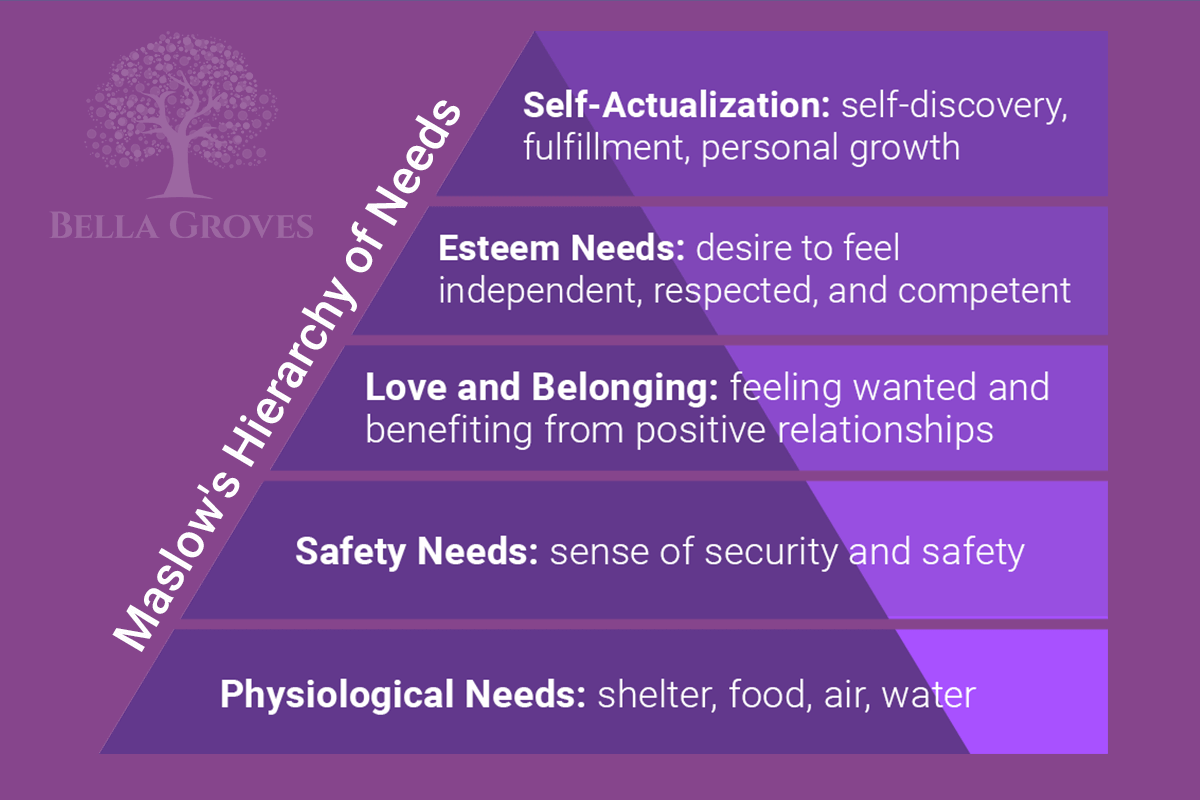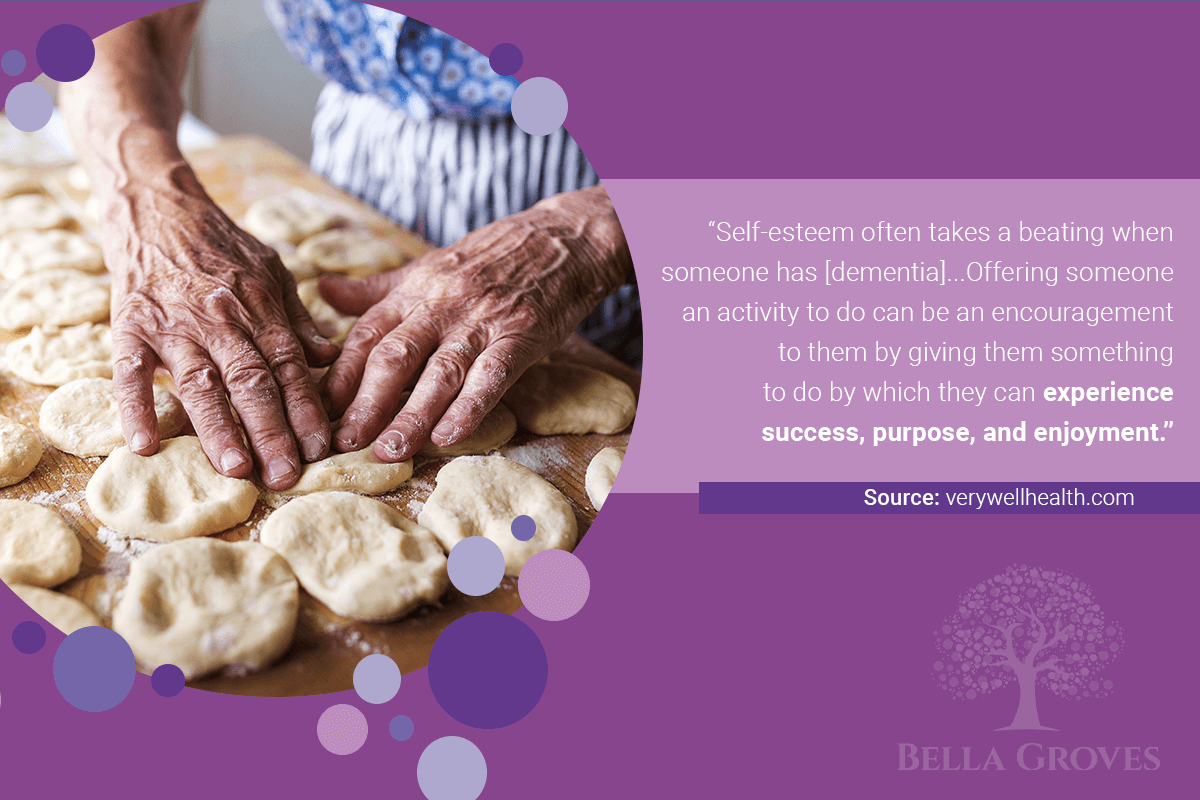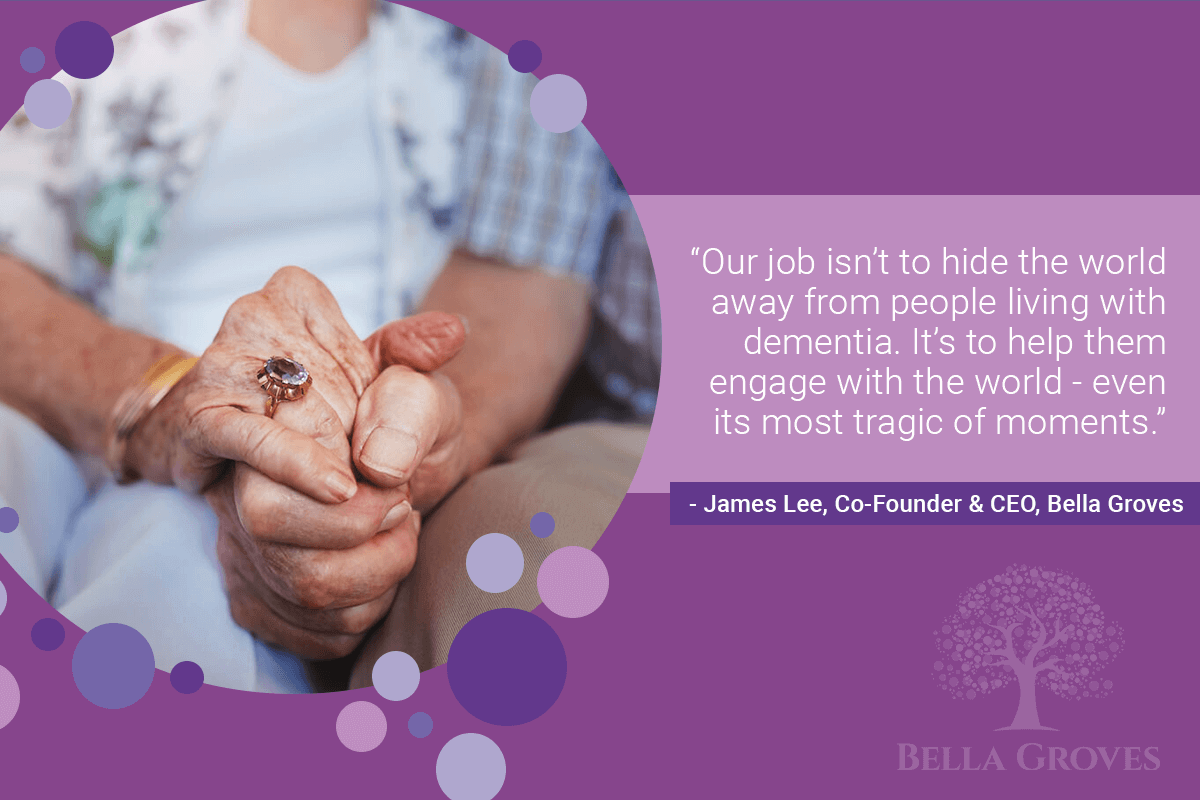
How Bella Groves Engages Residents to Promote Dignity & Joy
According to Maslow’s Hierarchy of Needs, we are motivated by five basic needs. These needs are often displayed as a pyramid, starting with basic needs at the bottom and fundamental needs at the top.
- Physiological Needs: shelter, food, air, water
- Safety Needs: sense of security and safety
- Love and Belonging: feeling wanted by others and benefiting from positive relationships
- Esteem Needs: desire to feel independent, respected, and competent
- Self-Actualization: self-discovery, fulfillment, personal growth
In a pyramid, the lack of one need can intensify the desire for another, creating an imbalance. This becomes especially true for people living with dementia, as many communities and care partners tend to focus on physiological and safety needs over esteem and self-actualization needs. But meeting all five needs is necessary for quality of life.
Although we evolve as people throughout our lives, the needs for safety, security, loving relationships, and respect are fundamentals that remain independent of these changes. And a person doesn’t stop being a whole person because they are living with dementia.
At Bella Groves, we engage residents by focusing on the whole person vitality. We don’t just provide a safe residential community with meals and security; we create programs and activities that engage residents, connect residents, and bring joy and purpose to their lives.
Involving Residents in their Care
Dementia care is a collaborative experience, and a person living with dementia is at the center of that experience. But too often, care is viewed as a list of tasks a care partner has to do for a person living with dementia instead of with them.
This becomes especially true at care communities where staff have too many residents to care for and not enough time in their shift. Throughout many of our careers, our team at Bella Groves has seen the impact that a lack of staffing has on resident care, which is why we implement a lower than average resident to caregiver ratio (1:4 vs. 1:8) to ensure this never happens in our community. Click here to learn more.
Meeting esteem needs starts with promoting independence whenever possible. At Bella Groves, our care partners encourage this by involving residents in their care tasks and activities rather than doing tasks for them. Even though it may take longer, the overall goal is to keep the residents involved in their daily routines and activities. For example, instead of just going through the motions of helping a resident get dressed, we walk them through the process and offer cues to keep them engaged and involved.
We also personalize care by getting information on daily routines and adjusting their care tasks to fit their routine, not our routine.
Involving Residents in the Kitchen
Food, meals, and cooking are a central part of our lives. For some people living with dementia, cooking was their role in the family and their purpose for many years. Cooking these daily meals can often be an essential part of someone’s independence, but many care partners and care communities avoid this need by focusing on the person’s limitations – “Mom can’t cook anymore because it’s not safe.”
While Mom may not be able to prepare an entire meal by herself, she can still find joy and purpose in cooking. At Bella Groves, we know that people living with dementia have varying needs and abilities, and we work to safely involve residents in the kitchen. We do this by creating a safe cooking environment, providing constant oversight, and specifying tasks they can do safely and successfully.
Having Community Pets
The positive impact that animals have on our lives is amazing. Large or small – pets and animals bring immense joy to people, and we bring that joy to Bella Groves residents. While we cannot permit outside pets to “move in” with residents, our community has community pets to ensure proper care and maintenance of the animals.
The research speaks for itself when it comes to dementia care and animal-assisted therapy. “Animal-assisted interventions can often improve self-esteem and confidence in people with dementia. It can also promote quality of life and encourage independence. Visits from an animal can be an energetic experience or an exciting part of a person’s day. Animals can be a wonderful source of love and laughter for people with dementia (alzheimers.org.uk/).”
In addition to our community pets, personal pets are permitted to visit the community as long as they meet the guidelines outlined in our resident handbook (housebroken, up-to-date shot records, and leashed).
A Different Approach to Dementia Care
Creating Unconditional Joy is at the heart of our mission at Bella Groves. In dementia care, that starts with seeing a person for who they are. We create care plans, programs, and activities that promote engagement, purposefulness, and personal growth.
Bella Groves is a place you have to feel to believe, so we invite you to stop by and take a tour. You’ll know the difference right away.


